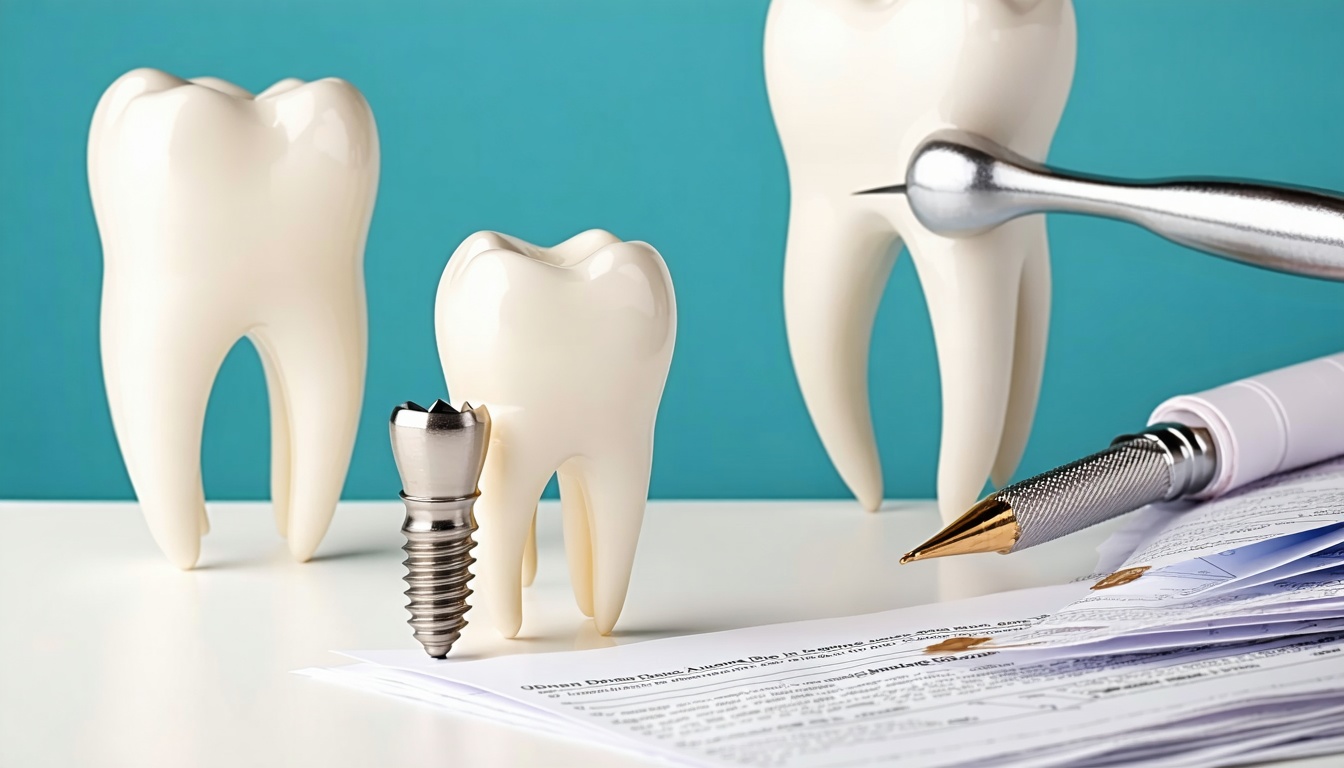
If you’re planning dental implants or same-day crowns you need to know insurance that covers dental implants and crowns can vary widely across plans. In this guide you’ll learn how insurers classify these restorative procedures, when coverage applies, and how to manage out-of-pocket costs. Whether you’re replacing a missing tooth for functional reasons or seeking a same-day crown to restore your smile you’ll gain the confidence to navigate your benefits and make informed choices.
Dental implants and crowns both fall under restorative or prosthodontic services, but insurers often treat them differently. Before you schedule treatment, it helps to understand:
Dental implants serve as artificial tooth roots made of titanium alloy, providing a sturdy base for one or more replacement teeth called crowns. Once placed into the jawbone or cheekbone they fuse with surrounding tissue for a permanent solution (Humana). Crowns are custom-fabricated caps that cover damaged or missing tooth structure—they can be placed on natural teeth or attached to implants.
For more on implant coverage see dental implant with insurance coverage and for porcelain crowns explore same day porcelain crown covered by insurance.
Most dental plans organize benefits into three tiers:
Dental implants and implant-supported crowns typically fall under “major services,” which carry higher cost-shares and waiting periods. Some insurers now offer partial implant coverage when deemed medically necessary or when replacing a tooth lost to injury or disease.
Insurers are more likely to cover restorative procedures when they meet criteria for medical necessity. Establishing necessity can reduce your out-of-pocket share.
Coverage is more common when an implant:
Speak with your dentist about documentation demonstrating that an implant is functionally required, not merely cosmetic.
Crowns may qualify as necessary if they:
Obtaining a predetermination of benefits can clarify your plan’s level of coverage before treatment begins.
Even when medically necessary, implants and crowns face plan-specific limits. Review these common constraints to avoid surprises.
If you need treatment sooner, ask about waiting period waivers or plans without delays.
Most policies cap annual benefits between $1,000 and $1,500. Major restorations count toward this limit. Additionally, crowns may be covered only once every 5 to 10 years. Check your Summary of Benefits for exact numbers.
Review exclusions carefully or consider a dental savings plan if your treatment is excluded.
Different insurers offer varying levels of implant and crown coverage. The table below summarizes key features; follow the links to explore each provider’s details.
| Insurer | Implant coverage | Crown coverage | Waiting period | Annual max |
|---|---|---|---|---|
| Aetna | Partial, if medically necessary 1 | 50%-80% for major crowns 2 | 6-12 months | $1,000-$1,500 |
| Delta Dental | Limited, may cover implant abutment 3 | 50%-80% for implant crowns | 6-12 months | $1,000-$1,500 |
| Cigna | Partial for implant-supported dentures 4 | 50%-80% | 6-12 months | $1,500 |
| Medicaid | Varies by state; some cover single implants | Generally not covered | Varies | No annual max |
| BCBS | Select plans offer implant benefits | 50%-80% on crowns | 6-12 months | $1,000-$2,000 |
For Medicaid-specific options search medicaid coverage for single tooth replacement. If you need a Medicaid-approved provider see medicaid approved implant dentist.
Same-day crowns can reduce appointments and downtime, but coverage rules apply.
Check if your plan supports same-day procedures with same day crown with delta dental or find an in-network same day crown dentist cigna. For urgent needs see emergency same day crown with insurance.
In-network providers agree to negotiated fees, lowering your share. Out-of-network dentists may charge more, and coverage percentages drop. Always verify network status before scheduling.
Even with coverage you might face significant expenses. These strategies can help bridge the gap.
Health savings accounts (HSAs) and flexible spending accounts (FSAs) allow you to pay dental costs with pre-tax dollars. You can allocate funds in advance to cover deductibles, copays, and any balance not paid by insurance.
Dental savings or discount plans often have no waiting periods and can reduce fees for implants and crowns. For example, some plans offer up to 40% off standard rates. These are an alternative if your insurance excludes major restorations.
Many practices offer in-office payment plans or partner with third-party lenders. Low-interest financing can spread implant and crown costs over several months or years.
Navigating insurance for implants and crowns takes planning. Follow these steps to move forward confidently.
By understanding your plan’s details and gathering necessary documentation you’ll be prepared to restore your smile with durable implants and same-day crowns while minimizing surprise expenses.


